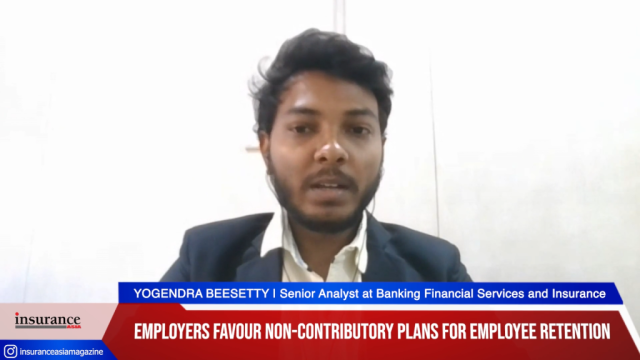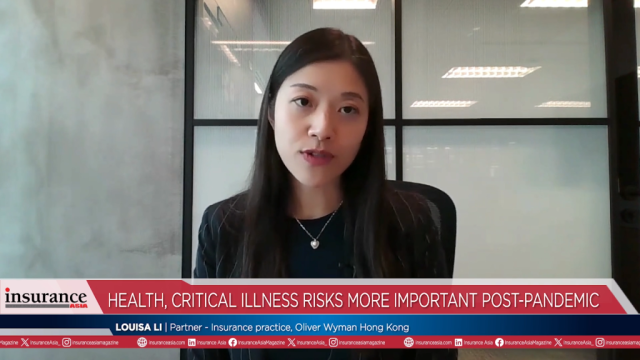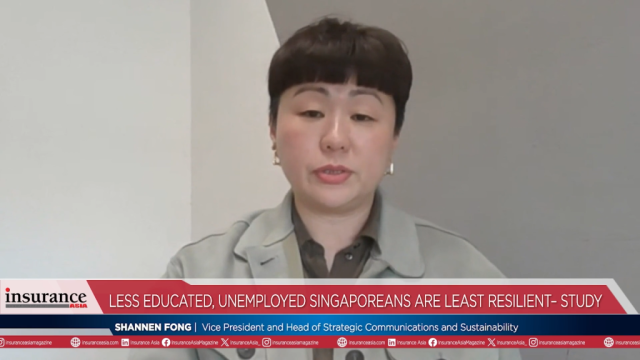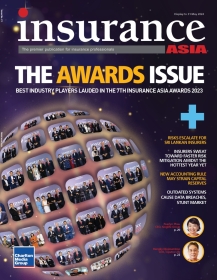
Customised offerings and AI solutions drive growth and customer satisfaction, Deloitte executive stresses
Deloitte executive Lim Siang Thnia highlights the opportunities that insurers can get from new technologies such as generative AI and the metaverse.
In the ever-evolving landscape of the insurance industry, adaptability and innovation reign supreme. Insurers have to keep up with changing demand by creating consistent and tailored customer experiences–a feat that can be achieved through technologies that enable seamless communication and service delivery.
Lim Siang Thnia, who serves as Executive Director of Deloitte Consulting Southeast Asia and the Insurance Sector Leader for Deloitte Southeast Asia, brings over two decades of experience and a deep understanding of the industry's dynamics.
He has worked for a direct insurer, a reinsurer and as a consultant. Lim has been engaged in a wide range of actuarial work in Southeast Asia, Greater China and the Middle East. His experience includes M&As, independent actuarial reviews and providing strategic advice for insurers.
Lim discusses with Insurance Asia his insights on the overall performance of Asia's insurance industry, where he sheds light on the potential of digital transformation, customer engagement, and the role of cutting-edge technologies in shaping the sector's future.
He underscores the immense potential that lies within the realm of hyper-personalisation, urging insurers to invest in creating consistent and tailored customer experiences. He also explored how insurers unlock new avenues for growth and reshape the landscape of Asia's insurance market through technology.
What are your thoughts on the overall performance of Asia’s insurance industry for the past year? Are there any trends or challenges insurers must take note of?
In general, the past 3 years have been challenging due to COVID-19, and it has been interesting to observe companies across all industries digitalise within a very short period. The insurance sector is no exception. These digitalisation efforts cut across customer service and business processes and/or operations. However, in particular, for the insurance sector, more can be done in the area of workforce and operations transformation – how can digitalisation help the insurance sector workforce be more efficient and productive in meeting customers’ needs?
Additionally, adaptation is key, as COVID-19 has resulted in some permanent changes to the way we work and how client services are delivered. For instance, hybrid work is now a norm, and clients now prefer to be served online or digitally.
Moving forward, we expect the take-up of insurance to be higher in the markets due to the rising adoption of technology, which makes it easier for consumers and intermediaries to access and transact insurance.
Consumers are getting more product and tech-savvy, and there is a need for insurers to provide more customised product choices that would suit the changing needs of consumers.
From a distribution perspective, customer interaction should be facilitated by technology to offer consistent and seamless service. We believe that a frontline “universal advisor” is the future of customer interaction – this advisor will have the ability to interact with customers face-to-face through technology enablers.
Looking at the global investment environment, it remains challenging and regulators are increasingly focusing on consumer protection. These are waters that insurers need to navigate.
One of the most recent promising technologies being introduced in the insurance landscape is the metaverse. What opportunities does it present to the industry and the insurers?
The metaverse is still in the stage of experimentation, and there is room for interpretation as to how the metaverse can affect business models. The change is imminent and insurance companies should set aside resources to investigate how the metaverse can help and to innovate around how the metaverse can change the customer experience and back-end processes.
For insurers, the metaverse presents possibilities that include improved risk management, individualised insurance packages or products, and more efficient claims processing. By making use of the metaverse to simulate events and assess the potential effects on policyholders and their insured risks, insurers can improve their risk management techniques and provide more accurate insurance products. In addition, customers can use the metaverse to create avatars or digital twins that match their behaviours and preferences, which can help insurers better understand their clients and provide tailored insurance offerings and more efficient claims processing. Additionally, through gamification, it could be easier and more fun to communicate with insurance agents.
This being said, more research and development are required for the metaverse to reach its full potential. It is still some years more before the metaverse reaches maturity for actual application in the insurance sector.
Digital transformation in the insurance industry enabled the hyper-personalisation of offerings to customers. How can insurers maximise this trend and drive growth in their respective companies?
This will be a primary investment area for insurance companies. Essentially, the idea is to ensure consistency when engaging customers. As insurers build up a deeper understanding of customers’ needs over time, they should be able to develop better propositions and offer them via an effective delivery platform. In addition, technologies are converging and have reached a level of maturity that provides very promising perspectives on the way insurers communicate and service customers throughout the value chain. Furthermore, technology would also be able to help insurers to become more relevant to customers and shift from a low-frequency interaction model which focuses on traditional insurance services, to a medium-frequency interaction model where insurers provide customers with loss prevention, risk mitigation, investment and even health advice.
In addition, as generative AI such as ChatGPT continues to develop, it opens up opportunities for insurers to offer faster and more customised service to clients, for instance, personalised recommendations based on their needs. However, this also means insurers should ensure that the AI systems are secure to ensure that sensitive customer information is protected and that the systems are compliant with the relevant data privacy regulations.
What do you think is the importance of ESG compliance in the industry? How can insurers stay on top of this aspect?
The importance of ESG compliance in the insurance sector cannot be overstated, as it can have a significant impact on the company's financial performance and reputation, as well as its ability to manage risks. In fact, regulators are raising their expectations for financial institutions in the region to manage their ESG risks, especially those related to climate change. Insurance companies, in particular, have a responsibility to manage risks associated with ESG factors, such as the potential impact of climate change on their investments and underwriting, and the risks associated with the companies they invest in or insure.
To maintain ESG compliance, insurers can take various steps, including integrating ESG considerations into their investment and underwriting processes, conducting ESG risk assessments, engaging with stakeholders such as customers, employees, investors, and regulators, to understand their expectations around ESG, as well as reporting on their ESG performance to provide transparency to stakeholders and demonstrate their commitment to ESG compliance. By doing so, insurance companies can meet regulators’ expectations, better manage risks, identify opportunities, and maintain their reputations.
As part of the judges for this year’s Insurance Asia Awards, what qualities are you expecting from this year’s entries?
Future-ready insurers that are taking actions and preparing their companies for the future.






















 Advertise
Advertise









